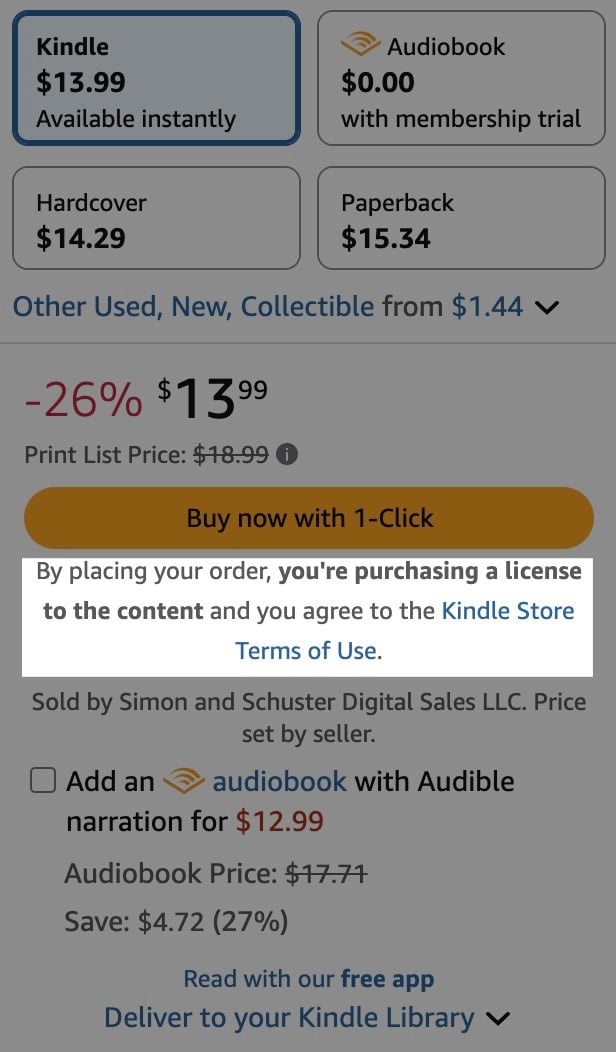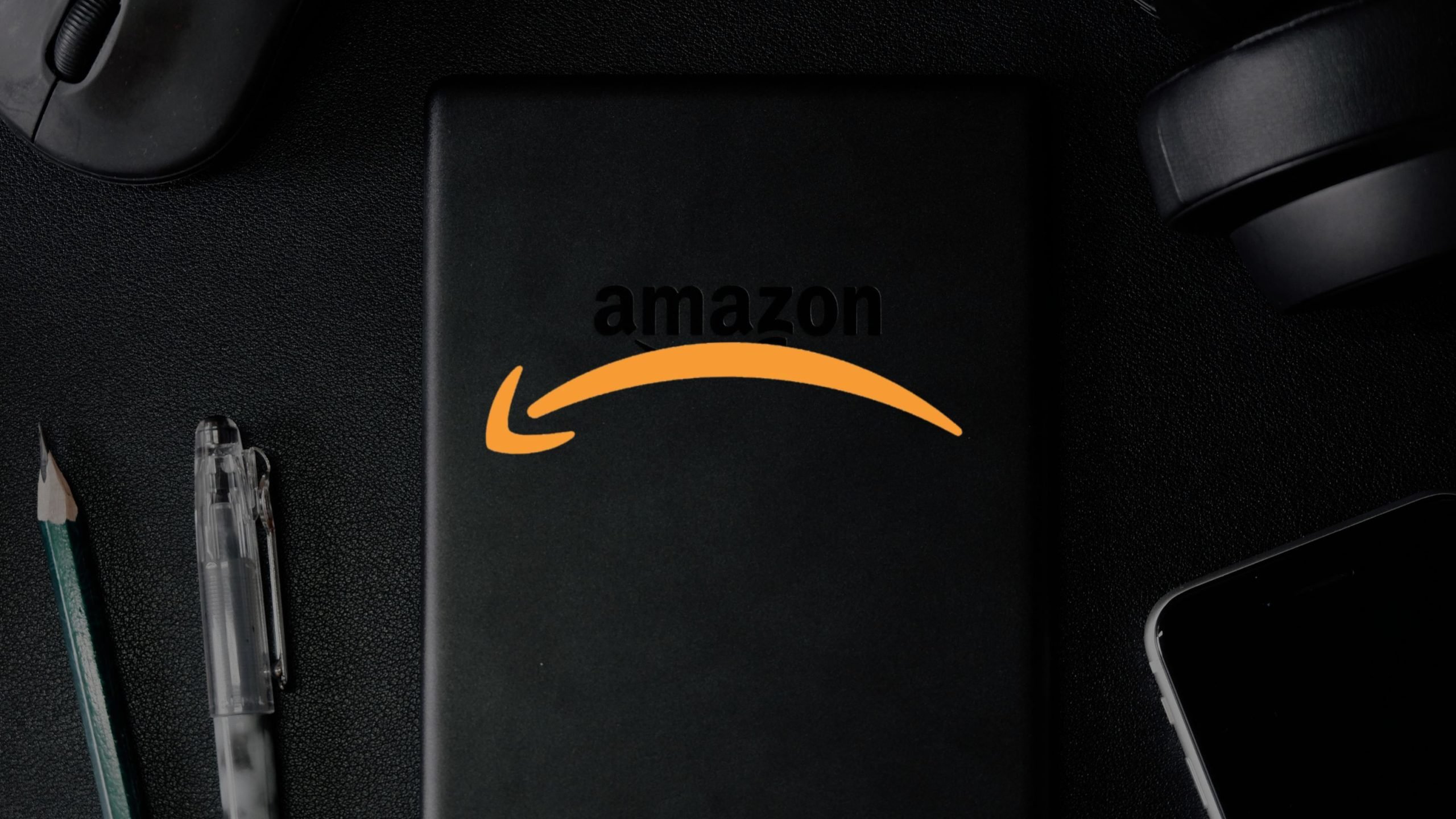These days people barely own the physical devices they hold in their hands (which gave rise to the Right to Repair movement) – let alone (proprietary) content, or software; and that has been the case for a long time.
Whether it’s a copy of a closed-source operating system, or an ebook, what the customer gets is a license to use/view it – not ownership.
But it’s also been one of the “best-kept open secrets” in the tech market since many people remain under the impression that they pay to own these products.
More: Amazon sued for misleading you into believing you own a copy of the digital movies you purchase
The extent of this is such that it could be considered an extraordinary form of false advertising.

For reasons as yet unclear (a recent California consumer protection law is the “suspect”) – Amazon has just started clearly disclosing what it is actually selling to Kindle customers.
Those choosing to buy a Kindle version of a book get the details about the purchase before they proceed to checkout – and one of those details reads, in bold type, “(By placing the order) you’re purchasing a license to the content.”
This is followed by the declaration of agreement with Kindle Store terms and services (ToS).
But at least for the time being, Amazon is doing this only in the US, which is the reason to believe that the California law that mandates such disclaimers are “conspicuously” displayed to customers is the reason for the company’s sudden move.
In other markets, license buyers see only the part of the disclaimer about the ToS.
Amazon’s ebook business seems to be the first to have complied with the new rules (if only in the US) – Apple, Google, etc., are yet to catch up, according to some reports.
One might say that Amazon has “come a long way” in terms of transparency and respect for consumer rights since 2009, and the unforgettable incident when the giant remotely deleted copies of none other than George Orwell’s “1984” and “Animal Farm” from Kindle devices.
That alone should have been a clear signal to Kindle customers that they don’t actually own what they buy in that store – but better late than never, Amazon is now spelling it out for them.













